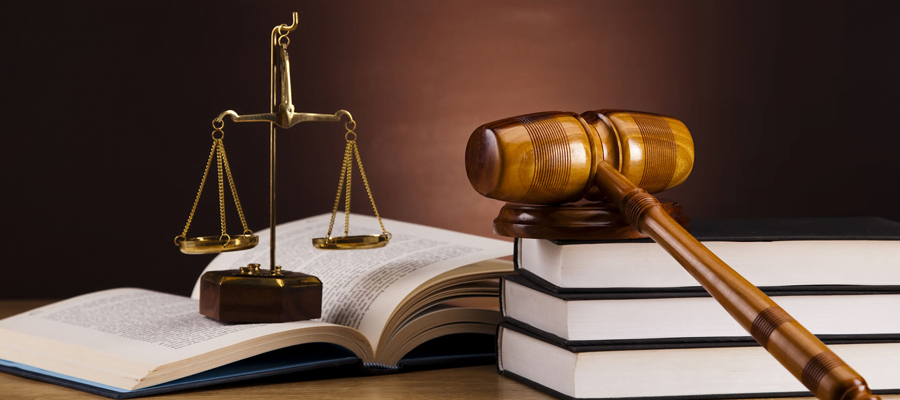Navigating Legal Challenges: Insights from a Child Law Case Study
Share
In recent years, more and more people have been using social media platforms to post their experiences, thoughts, and feelings online. However, these platforms are not always safe spaces, and individuals can face repercussions when posting.
Social media can be a powerful tool for connecting and supporting others. It can also be used to spread hate, bullying, and misinformation. Unfortunately, the platforms we use to share our experiences and thoughts are not always safe spaces.
This post will examine the case of a young girl who posted a message about her life on Instagram. A man then used the positions she made to stalk and harass her. He began sending her messages, including threats, images of his genitals, and sexual comments. Eventually, he was arrested and charged with stalking and harassing a minor.
The case study I’ll share here, based on a child law dispute between my parents, is particularly dramatic. It was especially difficult for our family because I had been caught up in the legal system for several years. During that time, I spent time in juvenile detention, courtrooms, police stations, and group homes. My parents faced many challenges, including mounting legal fees and the stress of navigating the complex and confusing world of the juvenile justice system. As such, I saw this as an opportunity for my parents to have a deeper conversation about how they would handle these challenges.

Why this case study is important
As a parent, I know how easy it is to fall into the trap of allowing our children to post inappropriate or embarrassing things online. I understand that some people think that they are helping by telling others about what they’ve done, but the truth is that they are only making things worse. However, sometimes the most difficult decisions come with the best rewards. In this article, I’ll walk you through an important case study of mine and share the insights I gained from it.
What you need to know
As social media grows, so does the risk of being exposed to content you would never see on a traditional platform. Consider a case study I conducted last year where a user posted an image of herself holding up her baby son in a room full of guns. The caption said, “I was held at gunpoint today.”
The image went viral, and soon after, she received a call from a police officer who told her that he had seen the post. She did not get in trouble for the post itself, but the police officer decided to investigate the situation because the post included a threat. The user was subsequently forced to sign a document agreeing to avoid making similar threats in the future.
Legal considerations
There are many legal considerations surrounding social media platforms. For example, if you post on a forum owned by Facebook, you must abide by their terms and conditions. These terms and conditions often include privacy and data protection clauses.
You may run into legal issues if you choose to share personal information. If your posts contain racist or offensive content, you may be held responsible. You may also be sued for defamation, libel, and tortious interference. Even if your post is completely truthful, you may still be sued. You could be held liable for causing a person to commit suicide.
Furthermore, if you post copyrighted, trademarked, or otherwise legally protected content, you could face legal ramifications. Even if you’re careful, there are plenty of reasons why you should be cautious when posting on social media.
A recent Centers for Disease Control study found that nearly 3% of young adults had experienced cyberbullying. This can have a lasting impact on your child’s mental health and overall well-being. Cyberbullying is a form of bullying that occurs over the internet or via text messaging. While not always intentional, cyberbullying is often motivated by meanness, spite, and a desire to harm. It is often perpetrated by someone older or younger than the victim. It can happen anywhere, at any time.
Cyberbullying is a growing problem, but there are ways to combat it.
Regarding social media, you should take steps to protect your child.
First, set up an account.
Your child should have an account, and you should set up parental control.
Second, review the privacy settings.
You should review the privacy settings and ensure your child can only post information they can identify.
Check the privacy settings and the terms of service on each platform to ensure you are not banned from using the platform.
If your child is banned from a platform, remove their account.
Frequently Asked Questions Child Law
Q: How did this case study come about?
A: This case study was part of a research project for my law school class. As part of that project, I looked at child cases in different areas of the law, including cases involving child pornography. I found a few interesting issues and decided to pursue those cases further.
Q: How did you find the resources for this case study?
A: I used the LexisNexis database and searched for child pornography. I also used Google, the American Bar Association, and my personal experience.
Top Myths About Child Law
- Children cannot be competent to give evidence.
- Children’s evidence must be corroborated.
- Children’s evidence cannot be considered unless an adult tribunal considers it.
- A child’s evidence should not be discounted simply because it may be unreliable.
Conclusion
It was natural that I would start writing a book about child law after spending several years helping families with these challenges. When it comes to the legal system, there is so much information out there that it can be hard to sort through it all. I created this guide about the different types of cases involving children. It includes a list of questions you can ask yourself before deciding whether to proceed with a lawsuit.



















